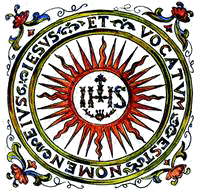From Christianity Today online - an interesting piece on the increasingly prevalent idea that what matters most with regard to sacred matters is the "feeling" and "emotional" or "transcendent" effect - not, for instance, "theology" or even "truth" - or rather, feeling is the ultimate, final test for "truth." All in all a very troubling phenomenon in mainline and even Catholic churches today.
Excerpt:
Ten Differences
These two ways of understanding God the ecstatic and the orthodox underlie the theological division in mainline Protestant churches. These differences are not always clearly articulated, and many persons have vaguely adapted portions of each. When the matter is thought through, however, these two views differ in virtually every dimension of the Christian faith.
4. Ecstatic: The task of theology is to reinterpret the faith as relevant to new cultural contexts. The content of faith evolves since culture evolves.
Orthodox: The task of theology is first and foremost to clarify and preserve the faith once delivered to the saints and to transfer it intact to each succeeding generation. Certain aspects of revelation never evolve.
5. Ecstatic: Since personhood requires objectivity that is, a person over against us who can speak to us God is not personal so much as he is an energy to be experienced.
Orthodox: God is personal, revealing himself as God the Son who became objectively incarnate in the man Jesus, with whom one can have a relationship.
7. Ecstatic: Sacraments or ordinances express the identity and unity of the ongoing life of the church.
Orthodox: In liturgical traditions, sacraments are concrete means of supernatural grace by which God transforms his people. In the free churches, ordinances are the God-ordained means by which believers show their faith in God's saving acts. Both focus on God's action.
8. Ecstatic: All religions are ultimately one since the faith of each is an expression of the Holy or Ineffable in the concrete forms of a particular culture.
Orthodox: The particulars of a religion matter, and therefore, the religions are divided by their specific content.
Click to read the rest.
(Via A Catholic Blog For Lovers).
The Catholic Church has sometimes been criticized for sentimentality in its devotions or for paying too much attention to emotionally pleasing aesthetics, but I see much greater danger for this in the Protestant churches, in the Evangelical or Pentecostal ones - the "conversion" or "born again" experience that focuses on personal emotion, the altar calls, the emotive preaching (of course, these groups also tend to be firmly focused on the Bible and so introducing doctrinal looniness would be difficult). Transcendent, transcendent, transcendent. The mainline churches, which this article focuses on, have a much greater problem in that their idea of authority has much less stability than, say, a Catholic church has with the Magisterium and an Evangelical church has with the Bible, which can lead to the sort of difficulties that are currently ripping apart the Anglican communion and causing trouble for the ECLA, the Presbyterians, and the Methodists.
Friday, October 08, 2004
Subscribe to:
Post Comments (Atom)




















No comments:
Post a Comment